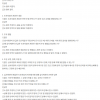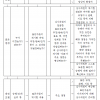 방명록&자유게시판 방명록&자유게시판 | Home>커뮤니티>방명록&자유게시판 |
자료 Debate Flow for using Chat gpt - 2024.10.17.
페이지 정보

본문
0. You need to do debate. The debate topic is 'X.' If you understand, please give me definitions of the key terms of the debate topic, background contexts of the debate, and the problems and necessity for doing this debate, standards or policies for clarifying key issues for both sides of the debate.
1. (Proposition side) Please provide me your arguments, reasonings, evidences for supporting the topic. Plus, you need to provide logical links and explanations between arguments, reasoning, evidences, and the debate topic. Please do your best.
2. (Opposition Side) Please provide me your arguments, reasonings, evidences for opposing the topic. Plus, you need to provide logical links and explanations between arguments, reasoning, evidences, and the debate topic. Please do your best.
3. (Proposition Side) Please provide me rebuttals against the side of opposing topic. When you do rebuttals, please also provide the reasonings, evidences, and logical links to motions of the rebuttals. And the rebuttals need to point out directly what the opposing side above mentioned.
4. (Opposition Side) Please provide me rebuttals against the side of supporting topic. When you do rebuttals, please also provide the reasonings, evidences, and logical links to motions of the rebuttals. And the rebuttals need to point out directly what the supporting side above mentioned.
5. (Proposition Side) Please provide me counter-rebuttals against the rebuttals from the side of opposing topic. And please provide me the reconstructing and further strengthening initial arguments from the side of supporting topic.
6. (Opposition Side) Please provide me counter-rebuttals against the rebuttals from the side of supporting topic. And please provide me the reconstructing and further strengthening initial arguments from the side of opposing topic.
7. (Proposition Side) Please provide me extensions for supporting the topic. Extensions can include new arguments which have not yet been made in the debate, new rebuttals to material raised by the other side, new examples or case studies, new analysis or explanation of existing arguments, new applications of existing argumentation, new criteria for judging the debate or a new defense of existing criteria for weighing arguments.
In this time, please provide only 'x'. You should not provide other kinds of extensions. And please also provide reasonable and ample explanations about why the x is most important and relevant in this debate.
8. (Opposition Side) Please provide me extensions for supporting the topic. Extensions can include new arguments which have not yet been made in the debate, new rebuttals to material raised by the other side, new examples or case studies, new analysis or explanation of existing arguments, new applications of existing argumentation, new criteria for judging the debate or a new defense of existing criteria for weighing arguments.
In this time, please provide only 'x'. You should not provide other kinds of extensions. And please also provide reasonable and ample explanations about why the x is most important and relevant in this debate.
9. (Proposition Side) Please make the clashes and summaries from the arguments and rebuttals from both sides. Then please compare to explain why the supporting side should win this debate.
10. (Opposition Side) Please make the clashes and summaries from the arguments and rebuttals from both sides. Then please compare to explain why the opposing side should win this debate.
11. (Adjudicator for Proposition side) Now, the debate is finished. You are not debaters in above debate anymore. You need to adjudicate above debate from now on. If you give win to supporting side, please explain why you need to do that. When you explain the reason, please use below guidelines.
https://www.riss.kr/link?id=T14760725
Guidelines for Debate Adjudication:
An Example of a Win/Loss Decision Model for Pro-Con Debate
1. Win&Loss/Results/Rankings
1)Questions
(1)Who wins?
(2)Who loses?
2)Answers
(1)Team A wins.
(2)Team B loses.
2. Materials from debaters
1)Questions: What arguments, rebuttals, reasoning, evidence and other elements support the results?
2)Answers
(1)Team A wins because of the argument from the team.
(2)Team B loses because of the rebuttal from the team.
3. Main Clashes/Issues
1)Questions
(1)Why and how do materials from debaters stated by the adjudicator support the results?
(2)Why does the “data” suggested by the adjudicator establish main clashes/issues?
2)Answers
(1)Clash/Issue C is the main clash/issue of the debate, and team A wins because it takes the clash/issue by providing the good argument.
(2)Clash/Issue C is the main clash/issue of the debate, and team B loses because it doesn't take the clash/issue by providing the rebuttal supported by insufficient evidence.
4. Debate Rules, Conventions, Agreements
1)Questions: Which debate rules, conventions, and agreements support the main clashes/issues suggested by the adjudicator?
2)Answers: The adjudicator compares the argument from Team A and the rebuttal from Team B, because the debate rules ask adjudicators to compare arguments and rebuttals from each team to decide the win and loss.
5. Prepared Answers by the Adjudicator for Expected Complaints from Debaters
1)Questions: What variables related to win/loss are in each main clash/issue?
(1)What did the winning team do better in relation to the clash/issue?
(2)What did the losing team do less well in relation to the clash/issue?
2)Answers
(1)If the argument from Team A was not supported by the evidence, Team A could have lost the debate.
Real comment from the adjudicator in the debate: The argument from Team A was well supported by the evidence, so Team A wins the debate.
(2)If the rebuttal from Team B crushed the argument, Team B could have won the debate.
Real comment from the adjudicator in the debate: The rebuttal from Team B did not crush the argument, so Team B lost the debate.
6. Level of Confidence of the Adjudicator in the Debate Results
1)Questions: How much confidence does the adjudicator have about the win/loss of the debate?
2)Answers: This debate is close and hard to judge/clear and easy to judge.
12. (Adjudicator for Opposition side) Now, the debate is finished. You are not debaters in above debate anymore. You need to adjudicate above debate from now on. If you give win to supporting side, please explain why you need to do that. When you explain the reason, please use below guidelines.
https://www.riss.kr/link?id=T14760725
Guidelines for Debate Adjudication:
An Example of a Win/Loss Decision Model for Pro-Con Debate
1. Win&Loss/Results/Rankings
1)Questions
(1)Who wins?
(2)Who loses?
2)Answers
(1)Team A wins.
(2)Team B loses.
2. Materials from debaters
1)Questions: What arguments, rebuttals, reasoning, evidence and other elements support the results?
2)Answers
(1)Team A wins because of the argument from the team.
(2)Team B loses because of the rebuttal from the team.
3. Main Clashes/Issues
1)Questions
(1)Why and how do materials from debaters stated by the adjudicator support the results?
(2)Why does the “data” suggested by the adjudicator establish main clashes/issues?
2)Answers
(1)Clash/Issue C is the main clash/issue of the debate, and team A wins because it takes the clash/issue by providing the good argument.
(2)Clash/Issue C is the main clash/issue of the debate, and team B loses because it doesn't take the clash/issue by providing the rebuttal supported by insufficient evidence.
4. Debate Rules, Conventions, Agreements
1)Questions: Which debate rules, conventions, and agreements support the main clashes/issues suggested by the adjudicator?
2)Answers: The adjudicator compares the argument from Team A and the rebuttal from Team B, because the debate rules ask adjudicators to compare arguments and rebuttals from each team to decide the win and loss.
5. Prepared Answers by the Adjudicator for Expected Complaints from Debaters
1)Questions: What variables related to win/loss are in each main clash/issue?
(1)What did the winning team do better in relation to the clash/issue?
(2)What did the losing team do less well in relation to the clash/issue?
2)Answers
(1)If the argument from Team A was not supported by the evidence, Team A could have lost the debate.
Real comment from the adjudicator in the debate: The argument from Team A was well supported by the evidence, so Team A wins the debate.
(2)If the rebuttal from Team B crushed the argument, Team B could have won the debate.
Real comment from the adjudicator in the debate: The rebuttal from Team B did not crush the argument, so Team B lost the debate.
6. Level of Confidence of the Adjudicator in the Debate Results
1)Questions: How much confidence does the adjudicator have about the win/loss of the debate?
2)Answers: This debate is close and hard to judge/clear and easy to judge.
13. (Adjudicator for Proposition Side) What are the possible questions and complaints from the opposing side and how you will defend your initial decision against the questions and complaints?
14. (Adjudicator for Opposition Side) What are the possible questions and complaints from the supporting side and how you will defend your initial decision against the questions and complaints?
15. (Adjudicators) Please free from the decisions above, as adjudicators, please provide additional feedbacks to both sides for improving their whole arguments, rebuttals, clashes, summaries and others in this debate.
16. (Proposition Side) Now, the adjudication from all adjudicators are finished. As the debaters from the supporting side, please evaluate both adjudicators who gave you opposite results.
17. (Opposition Side) Now, as the debaters from the opposing side, please evaluate both adjudicators who gave you opposite results.
댓글목록
등록된 댓글이 없습니다.






































































































































































































































![[펌글]국적 잃을뻔한 다문화 남매...대법 "주민등록증…](http://toronsil.com/gnu5/data/editor/2404/thumb-20240412172340_a1d9ece4528b680b64621eb7dc35a6a4_pxd5_100x100.png)
![[펌글]2024. 4. 10. 각급법원(제1,2심) 판…](http://toronsil.com/gnu5/data/editor/2404/thumb-20240412172333_a1d9ece4528b680b64621eb7dc35a6a4_re9b_100x100.png)




















